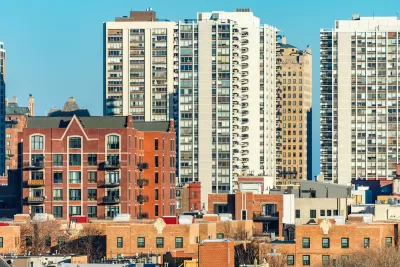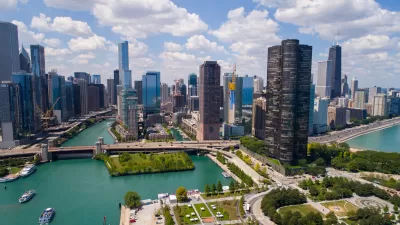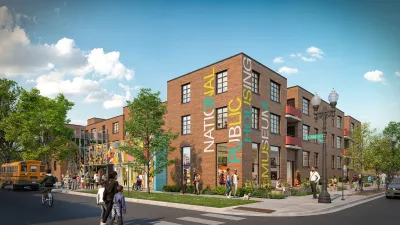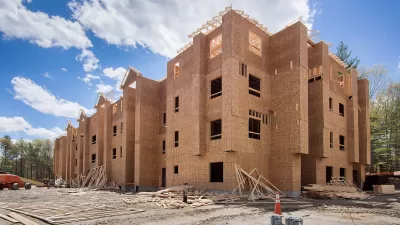Higher taxes on high-value property sales are being considered in Chicago, Connecticut, and Washington state as a way to address the housing crisis.

One-time fees on the sale or purchase of property, often called real estate transfer or real estate excise taxes, are nothing new. As Kevin Hardy explains for Stateline, such fees have been a fixture of many tax codes for decades. “But local and state governments are increasingly looking to create a ‘mansion tax’ targeting the higher ends of the real estate market” with the aim of tackling the growing housing crisis, he writes.
To date, 16 cities and counties and seven states have approved that type of tax, many with the intent of putting the revenue to building affordable housing. Though not without pushback. The approach has led to litigation in Santa Fe and Los Angeles. But that’s not stopping other cities and states from considering it, including Chicago, Massachusetts, and Washington state, according to the Stateline article.
In March, “Chicago voters will decide whether to approve Democratic Mayor Brandon Johnson’s Bring Chicago Home referendum, which would increase the real estate transfer tax on expensive properties. And legislators in Massachusetts are weighing a bill that would allow cities to impose their own real estate transfer fee,” Hardy reports. Washington state lawmakers are also considering a bill that would increase the tax on property sales above $3 million, while decreasing it for less expensive sales.
FULL STORY: If you can buy a ‘mansion,’ you can pay a tax for affordable housing, these states say

Maui's Vacation Rental Debate Turns Ugly
Verbal attacks, misinformation campaigns and fistfights plague a high-stakes debate to convert thousands of vacation rentals into long-term housing.

Planetizen Federal Action Tracker
A weekly monitor of how Trump’s orders and actions are impacting planners and planning in America.

San Francisco Suspends Traffic Calming Amidst Record Deaths
Citing “a challenging fiscal landscape,” the city will cease the program on the heels of 42 traffic deaths, including 24 pedestrians.

Defunct Pittsburgh Power Plant to Become Residential Tower
A decommissioned steam heat plant will be redeveloped into almost 100 affordable housing units.

Trump Prompts Restructuring of Transportation Research Board in “Unprecedented Overreach”
The TRB has eliminated more than half of its committees including those focused on climate, equity, and cities.

Amtrak Rolls Out New Orleans to Alabama “Mardi Gras” Train
The new service will operate morning and evening departures between Mobile and New Orleans.
Urban Design for Planners 1: Software Tools
This six-course series explores essential urban design concepts using open source software and equips planners with the tools they need to participate fully in the urban design process.
Planning for Universal Design
Learn the tools for implementing Universal Design in planning regulations.
Heyer Gruel & Associates PA
JM Goldson LLC
Custer County Colorado
City of Camden Redevelopment Agency
City of Astoria
Transportation Research & Education Center (TREC) at Portland State University
Jefferson Parish Government
Camden Redevelopment Agency
City of Claremont





























